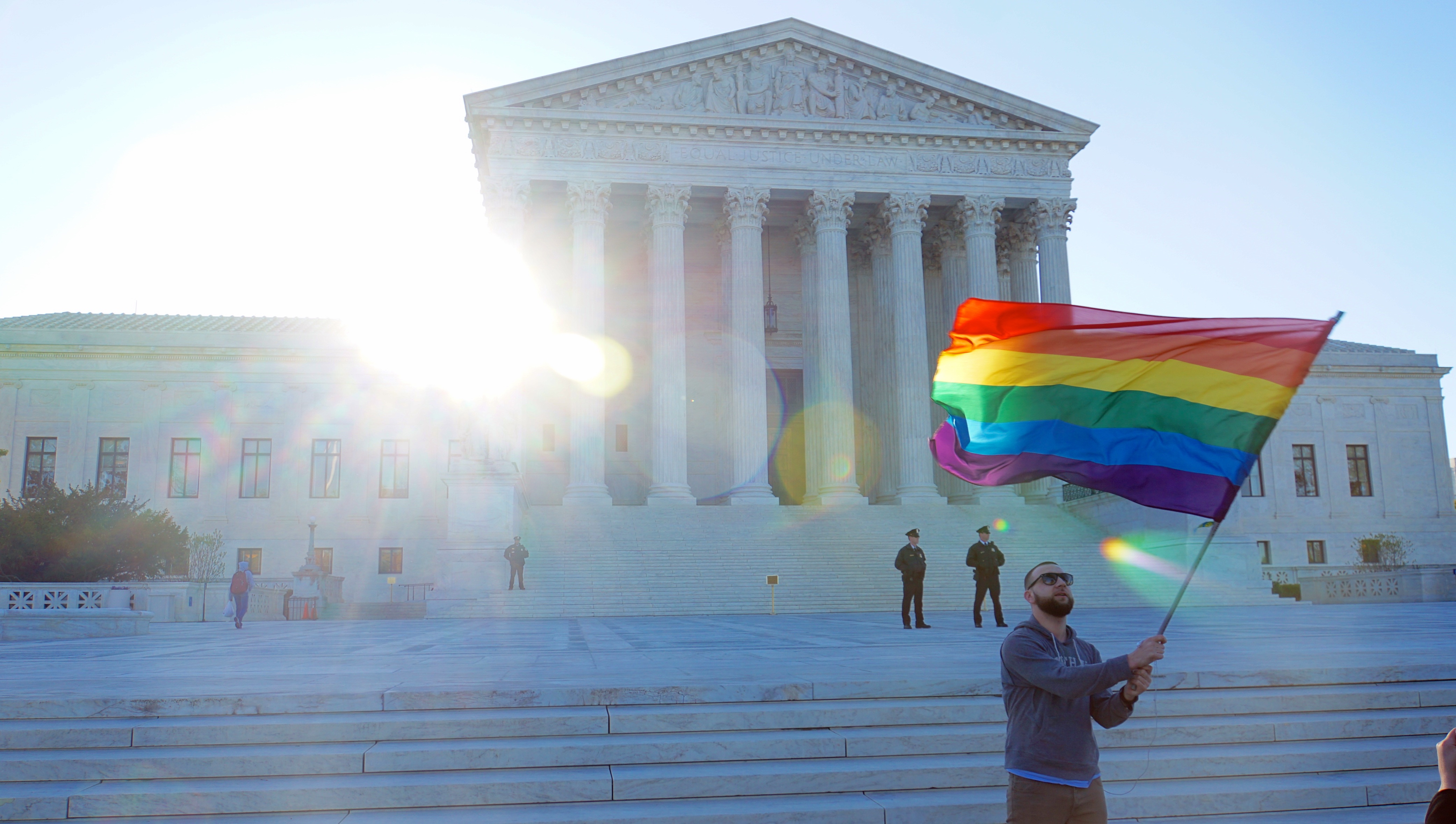In the summer of 2022, the US Supreme Court ruled on Dobbs v. Jackson Women’s Health Organization, overturning Roe v. Wade, which had created a framework to regulate abortion by trimester and ensured access to previability abortions on a federal level. In Justice Clarence Thomas’s concurring opinion, he urged the country to reconsider other cases that followed the same precedent as Roe—namely, those federally legalizing same-sex marriage and same-sex intimacy. This legal precedent cited by Thomas is upheld by the much-contested principle of substantive due process, the legal interpretation that the Fifth and Fourteenth Amendments of the US Constitution prohibit the government from excluding any person from exercising their rights to “life, liberty, or property without due process of law.”
Reliant on an ambiguous ideal of American freedom and barely bound to legal precedents, substantive due process has become a bipartisan tool. Both the right and left have used this reasoning to protect rights most ideologically aligned with their values, such as the right to refuse medication and vaccination or the right to access contraceptives. In 2022, Justice Thomas’s petition to revisit legal precedents protecting same-sex marriage and intimacy served only as a symbolic threat to the liberties of the country’s most marginalized communities. Three years later, it has become a promise.
Local Kentucky county clerk Kim Davis is serving Clarence Thomas his request on a silver platter. After being briefly jailed in 2015 for refusing to issue a marriage license to a gay couple under the guise of “God’s authority,” she is appealing a $100,000 jury verdict for emotional damages as well as $260,000 for attorney fees. She is formally and explicitly asking that the Supreme Court reconsider the decade-old landmark ruling on same-sex marriage, Obergefell v. Hodges, which asserted that states must legally license and recognize same-sex marriages. In doing so, Davis opens the door to legally exclude people from a ritual inherently intertwined with human history: marriage.
Davis’s actions follow a larger right-wing political trend of misconstruing a conservative perception of American identity for the constitutional right to freedom of privacy, a strategy used to overturn Roe v. Wade. The right to previability abortion, alongside the right to same-sex marriage, is not directly written into the US Constitution. However, both fall under a category of rights many believe to be directly derived from the Bill of Rights and protected by substantive due process, so interfering in abortion or marriage rights directly limits the exercise of life and liberty that is integral to the country’s founding document.
In Roe v. Wade, the Fourteenth Amendment’s protection of “personal liberties” was enough to safeguard a pregnant person’s right to an abortion. This right was supported by both the Ninth Amendment’s assurance that the Constitution’s rights “shall not be construed to deny or disparage others retained by the people” and the protection of “personal, marital, familial, and sexual privacy” written into the Bill of Rights.
On the other hand, in the 2022 majority opinion on Dobbs, Justice Samuel Alito argued that the Due Process Clause protects only two categories of substantive rights. The first includes solely the rights explicitly guaranteed in the Eighth Amendment of the Constitution, while the second includes those considered fundamental but not mentioned anywhere in the founding document. Deciding whether a right falls under one of those two categories, however, is completely dependent on the Justices’ determination of whether or not the right is “deeply rooted in [our] history and tradition,” writes Alito. Ultimately, the majority decided abortion was not grounded in either. Despite being an integral part of medical procedures and accepted as legal for 60 years, the majority opined that, until the 20th century, there was no support in American law for the constitutional right to an abortion and that this lack of cultural belonging was enough to not deem abortion a fundamental right.
The question at hand now becomes: Is same-sex marriage essential enough of a right to lie within the protections of the Due Process Clause? In Justice Anthony Kennedy’s majority opinion on Obergefell v. Hodges, he argues that it is. He asserts that “from their beginning to their most recent page, the annals of human history reveal the transcendent importance of marriage.” As such, seeking same-sex marriage affirms, rather than demeans, the institution’s importance. However, in his dissent, Chief Justice John Roberts argued that to define marriage as being only between a man and a woman is “to maintain the meaning of marriage that has persisted in every culture throughout human history.” In doing so, the Justice relied on the same reasoning as the majority in Dobbs, once again drawing on the ambiguity of tradition as legal justification. Despite marriage equality having been an indispensable element of the American cultural landscape for the past decade—as abortions were for six—is it possible that the majority-conservative Supreme Court will decide it is not a fundamental right? If so, not only will the Justices be delineating who has access to the basic right of marriage, but they will also be deciding which practices can be deemed truly American.
In short, the decision of whether or not Kim Davis’s plea to overturn Obergefell v. Hodges will be considered by the Court lies in the legal obscurity that has historically pervaded the American justice system and the much-contested concept of substantive due process. If overturned, Obergefell would follow the same path as Roe v. Wade as a victim of the weaponization of the judicial system by the right. Amidst a contemporary wave of anti-LBGTQ+ rhetoric, it is supremely important that the government protect the rights of its marginalized populations, but if Obergefell is overturned, it would legally affirm the prejudice and hate currently resurging in the United States.
By gatekeeping whose rituals are considered “American,” the Supreme Court would be compromising the ideals upon which this country was built: Liberty, equality, and justice for all.
